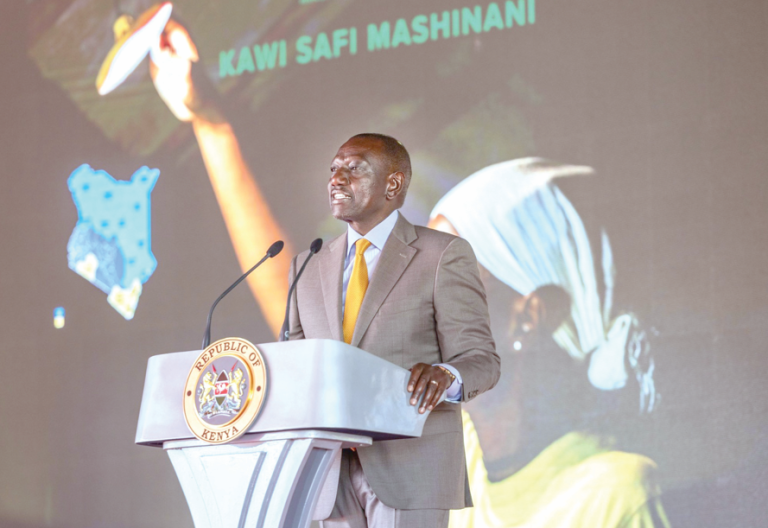How Ruto will gain from Raila’s AUC elections defeat

The political chessboard is full of twists and turns. Contrary to the popular believe that Raila Odinga’s loss in AUC will stir a new political movement and a strong opposition against President William Ruto, things have morphed to the advantage of the latter.
Unbeknownst to many, politics is a game of many possibilities, art of cul-de-sacs and craft of cunning. Now see, Raila has gravitated towards Ruto and possibilities are high that things will shape up for his inclusion at the heart of Ruto’s government.
Just to jog your memory, Raila once told Ruto at a funeral in Ainamoi constituency, Kericho County, that he would in the future need his support to become President. True to the prophecy, Raila is living to actualise that reality, and thus he’s perhaps making him President in his second and the final term. Ruto’s inevitable second term is just a matter of time, and the ostriches from the mountain can continue to bury their heads in the sand as the fire rages before it surrounds the mountain.
With the formidable formation consisting of the indomitable trio of Ruto-Raila-Mudavadi-Wetang’ula on the same boat, they can ride roughshod without a care how it will boomerang. They have a strong firewall and political grit to boot. The country is headed to the implementation of the NADCO report, which included the creation of the strong prime minister position, the creation of wholistic IEBC and strengthening the hemorrhagic judiciary.
The broadband-and-broadways government will accommodate all and sundry, to the chagrin of the weakened and waning opposing voices. As it is, chances are high that a one-unified ‘full loaf government’ will solely focus on achieving Vision 2030.
I would not mind Raila taking the junk of meat in the broad-based government because, unlike the preying mantis, his party have a diversity that accommodates the aspiration of this country’s ethnic and cultural makeup.
The preying mantis mantra of shareholding was a bad primitive combination pegged on shareholding and exclusionary politics. ODM has a rich blend of ethnicities across Kenya that will combine to make a broad-based government the mosaic of a nation.
As far as I can recall, I did indicate in one of my opinion pieces that excessive excitement and utopian wishful thinking that should Baba lose in Addis, he would join forces with Rigathi Gachagua to remove Ruto is far-fetched and idealistic.
Those expecting the two, who are no political strangers, to stop walking together any time soon may have just landed from outer space. Politics even when one is in disagreement with the goings-on need not be combative and about rubble-rousing.
Pragmatism, stealth, closing of ranks to shore up the numbers, forward looking, non-exclusionary, and sometimes exit strategies, are the name of the game. You cannot take away these skills from Baba Agwambo. He has mastered it and uses it with surgical precision.
The sages of Molima have always held that only a fool tries the depth of a river with both feet. As 2027 approaches, Molima vs the rest of Kenya is rolling out in plain sight.
This, despite the political humdrum on Molima, may not necessarily mean exclusion but may unfold into a sustained political pummelling into the realisation that sub-nationalism and ethnic Balkanization have no place in the Kenyan polity.
The formidable formation is unassailable if the confidence and trust is maintained and the economic trickling down in the spirit of bottom is actualised. Their coming together was anticipated with high spirits until the table tumbled down against Raila’s bid, sending celebratory laughter reverberating down the mountain.
As pessimists would argue, Gachagua can now take the mountain wherever he wishes—his ranting will not stop any formidable politics to take shape. But, I dare say, our political encounters, entwined with mortal fears, anxieties and interests, are the default propeller shafts that tolerate antiquated political strings of thought. This is what we need to unfetter ourselves from. Let us improve our political systems, ideas and fabric.
— The writer is a Communication Lecturer and Researcher













